In each Process Plant Project, some required process functionalities (such as Boilers, Pumps, Compressors, Turbine Drives, Fans, Flares, Material Handling Systems, …) are applied/ supplied by some set of equipment and devices which are assembled or integrated to each other in order to provide required actions.
Generally, each set of such equipment and devices (for providing some process functionalities) has one main vendor or supplier and is followed by one dedicated technical team as originator, usually called a Package.
It shall be noted that each Package vendor, may have some sub-vendors or sub-suppliers for providing different parts of the package (different equipment or devices). Also, each package vendor may supply some parts of the whole package from other package vendors.
As an example Turbo-Compressor Vendor package (which may be the main supplier of the Compressor), may have some other package vendor for supplying the Turbine (package) part of the project requirement.
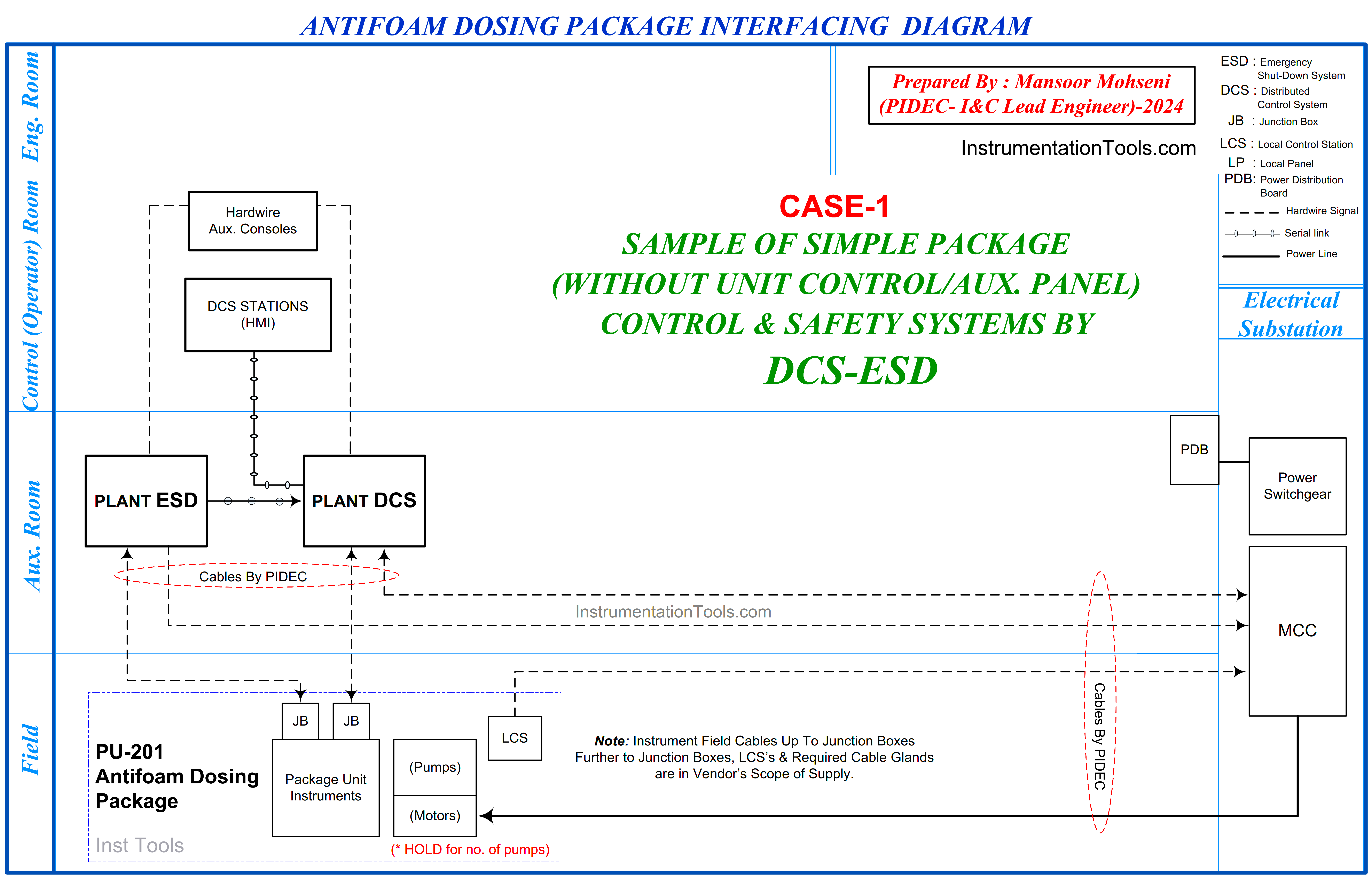
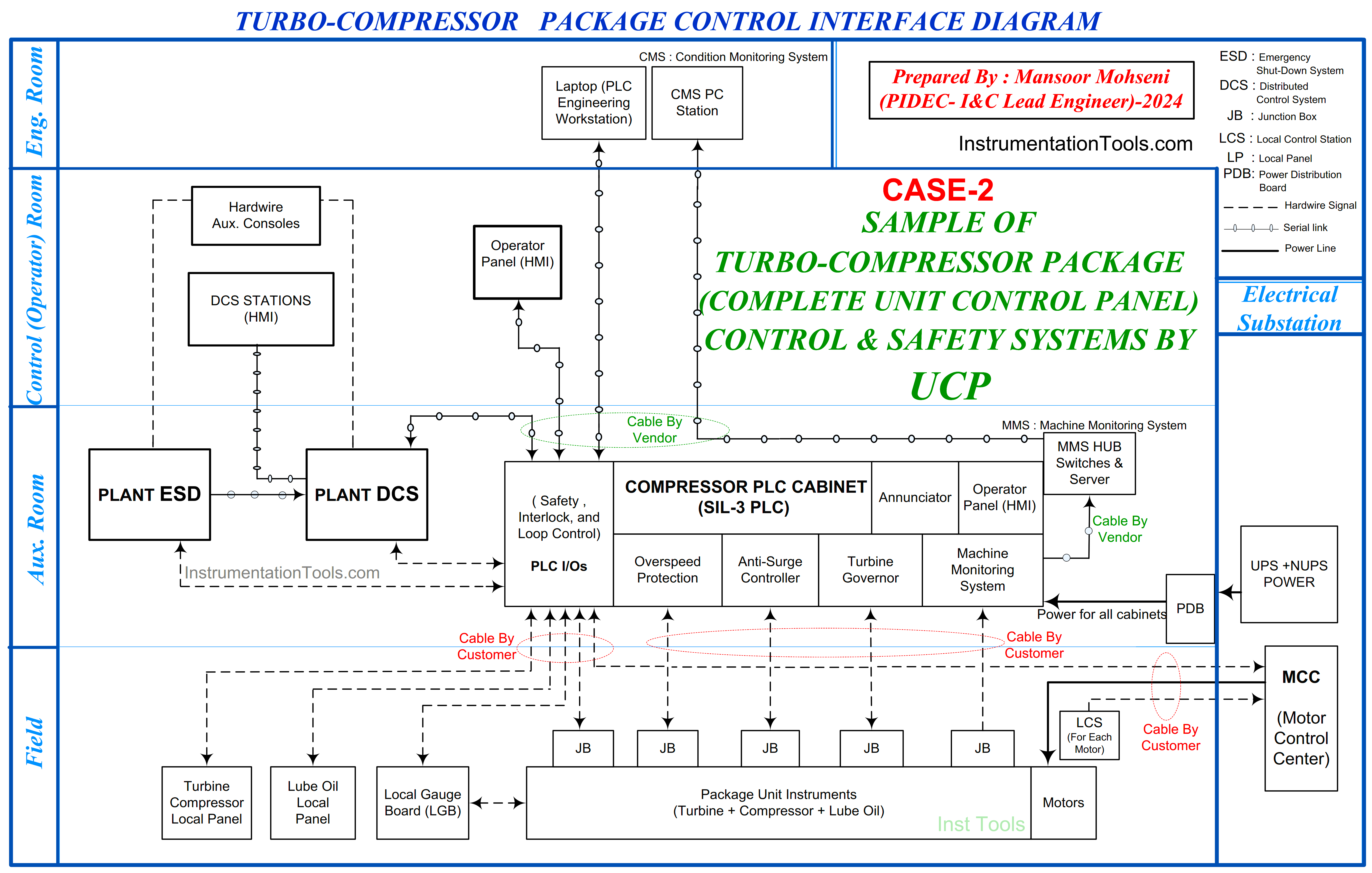
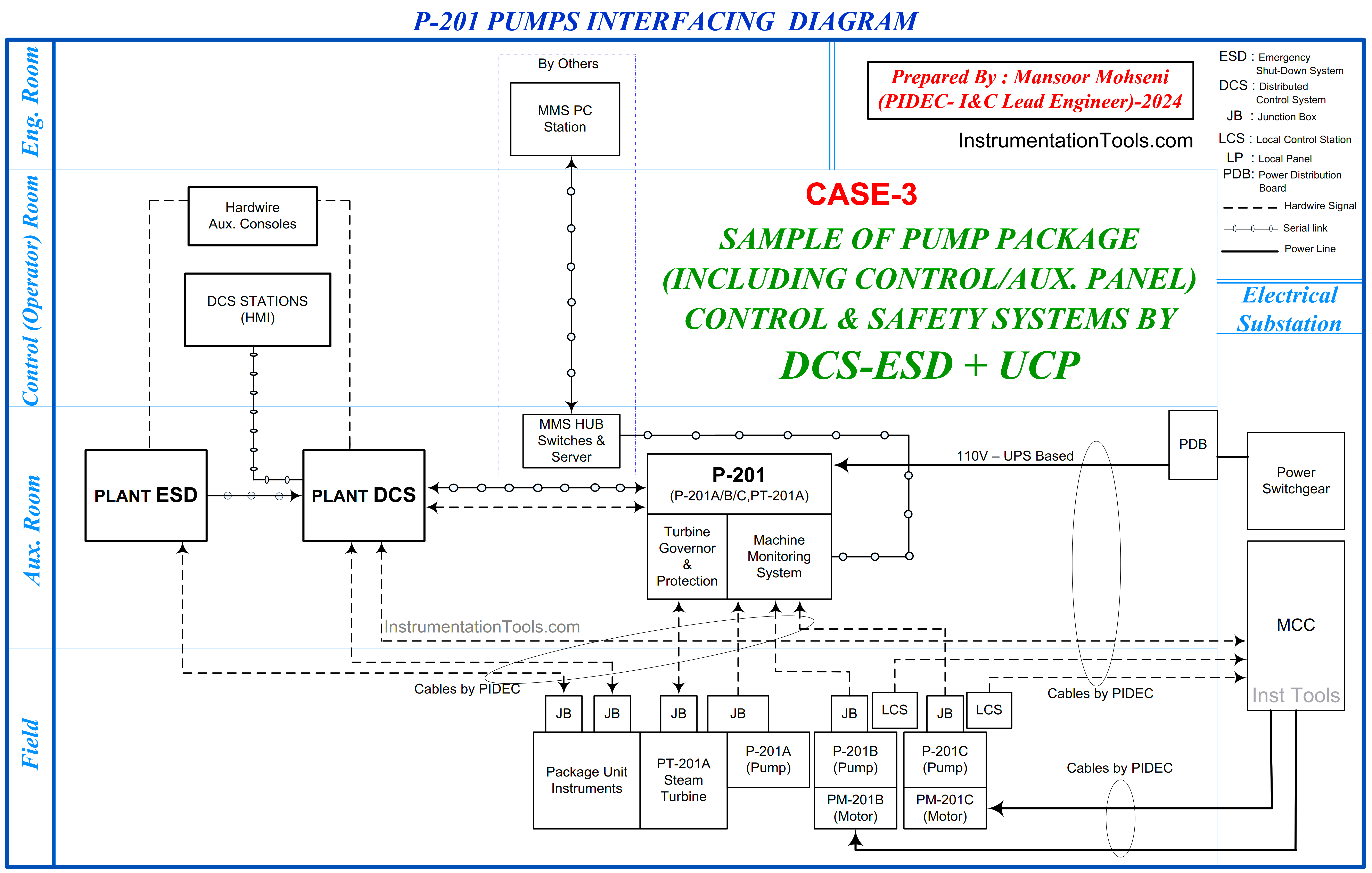
Figure-1: Three Different Types of Control & Safety Systems of Packages (Diagrams)
Definitions
Before starting the study of different Package Control and Safety Systems types, we should review some definitions:
DCS:
Distributed/ Digital Control System, is the Basic Process Control System (BPCS) which is normally used in Process Plant Projects.
ESD:
Emergency Shut Down System is the Safety Instrumented System (SIS) which is normally used in Process Plant Projects.
PACKAGE:
A set of equipment and devices which is assembled to each other to provide some process functionality requirements (and usually handled by one technical discipline as package originator for purchasing it).
UCP:
Unit Control Panel (UCP) is a set of cabinets or panels that include different types of systems and hardware for providing complete control and safety functional requirements of one Process Unit or Package (functionality) of the Process Plant Project. UCP may contain a PLC or Special Controller (such as an Electronic Governor) and other special systems (such as Machine Monitoring Systems).
PLC PANEL:
A set of cabinets or panels which includes complete hardware and software configurations of PLC (Programmable Logic Controller) system to provide some control and safety functionality requirements.
AUXILARY (AUX.) PANEL:
A set of cabinets or panels which includes some special systems or accessory hardware, and providing additional Control and Safety Systems functionality requirements (such as Machine Monitoring Systems or Over-Speed Protection).
SKID:
A base frame or platform which includes some integrated / assembled set of equipment and devices which are configured to provide some functionalities.
Package Control and Safety Systems
Instrumentation and Control (I&C) Team shall investigate suitable method for applying safety and control systems for each packages inside Process Plant Project.
Generally three methods may be applied for Package Control and Safety Systems:
- Completely implemented in plant DCS (Distributed/ Digital Control System) and SIS/ ESD (Emergency Shut Down) System.
- Using separate dedicated control and safety system (cabinets or panels) as UCP/ PLC Panel (Unit Control Panel/ Programmable Logic Controller Panel) which may include some auxiliary/ excess special systems too.
- Implementing required control and safety requirements by combination of DCS/ ESD and UCP (may include special systems) for applying different required functionalities (complete set of control and safety).
Figure-1 shows some sample cases for applying three different possible methods on Package Control and Safety Systems.
As the Figure-1 shows, such methods may be
- Very simple (completely in Process Plant DCS and ESD Systems), or
- Completely by separate UCP which may have some limited communications (or interfacings) with DCS/ESD systems, or
- Complex arrangement and interfacings of AUX. Panel with DCS/ESD systems. Figure-2 shows some actual selected systems for Package Control & Safety Systems (by explained different methods).
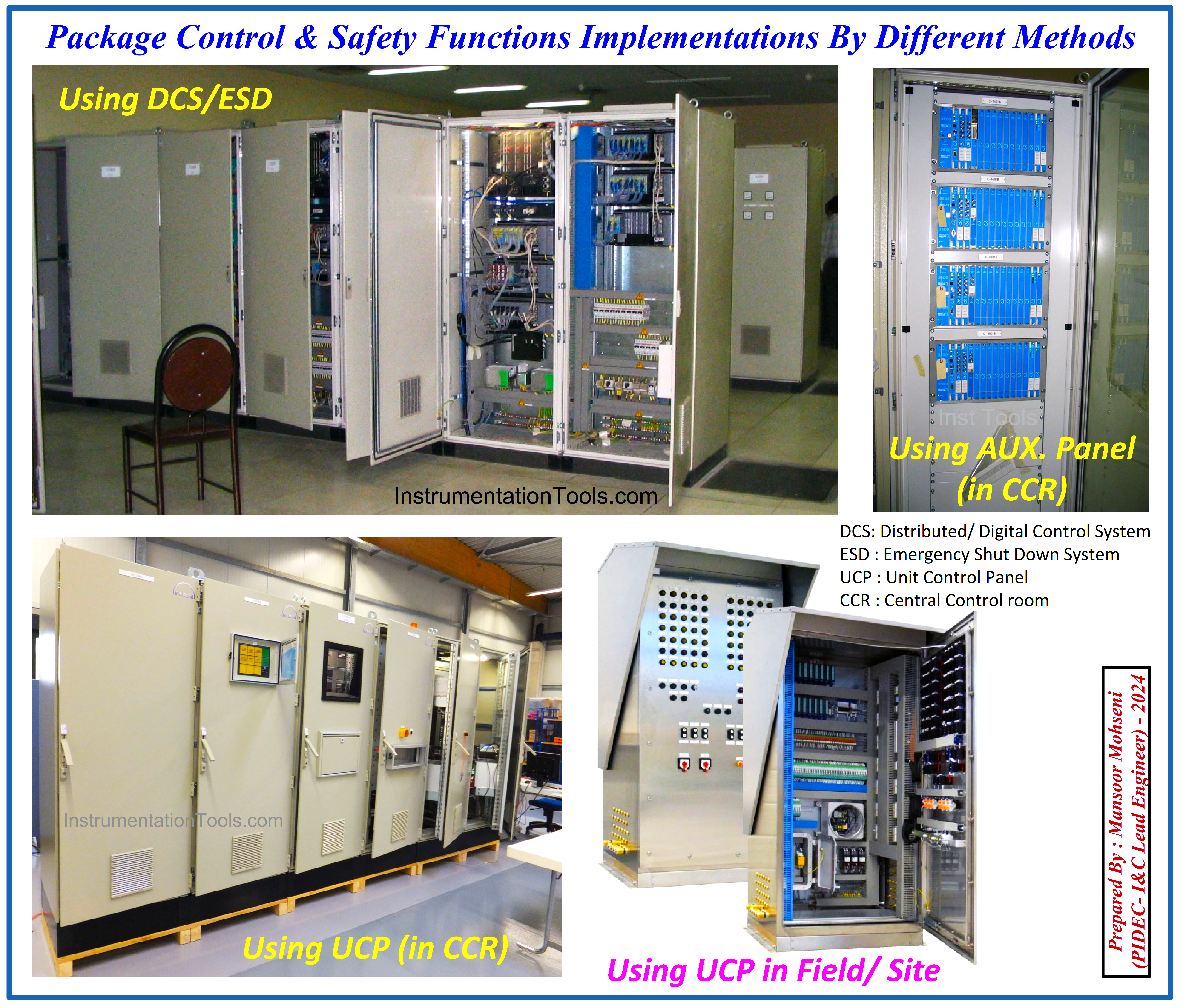
Figure-2: Some Real Examples of Implementing Different Types of Control & Safety Systems of Packages
Comparison of Different Methods
Selecting the best and actual method for each package depends on different factors and conditions that exist in each project, while it should be noted that selecting each method will have some advantages and disadvantages (weak points).
Since the third method is some combination of two other mentioned methods (first and second), so in order to simplify the review of advantages and weak points of different methods, we just compare the first and second methods.
1. Hardware and Software
| Comparing | Package Control By DCS/ESD | Package Control By UCP |
| UNIFORMITY OF ALL PLANT HARDWARE & SOFTWARE | Complete – There is no other variety than DCS/ESD systems. | |
| Making Variety – Since each package will have own system, So as the number of packages inside the plant is increased the probability of variety of systems will be increased. In the best cases, when the package vendors follow the I&C Team recommendations for using similar systems (as much as possible), then still the variety will be existed. |
2. Logics and Programs (Routines)
| Comparing | Package Control By DCS/ESD | Package Control By UCP |
| UNIFORMITY OF ALL PLANT LOGIC AND PROGRAMS ON CONTROL AND SAFETY ROUTINES (OR PROCEDURES) | Complete – The used procedures and routines inside all plant logics and programs will be (approximately) the same, since all of them implemented in one system, and the same design and procedure may be considered (and cared) by designers or programmers. | |
| Making Variety – Since each package will have own system, So as the number of packages inside the plant is increased the probability of variety of systems will be increased. In the best cases, when the package vendors follow the I&C Team recommendations for using similar procedure and routines (as much as possible), then still the variety will be existed due to different system languages. |
3. Spare Parts
| Comparing | Package Control By DCS/ESD | Package Control By UCP |
| SPARE PARTS AND WAREHOUSING | Optimum – Since there is less variety (Just hardware used in DCS/ESD systems) the required types and quantities of spare parts will be optimum. | |
| Variant and Too Many – Since each package will have own system, So as the number of packages inside the plant is increased the probability of variety of different used hardware components will be increased. In some cases, for low quantity of some components the required variant spare parts shall be considered too (even the quantity may be just one!), while if the package vendors using the same systems or hardware components (by I&C coordination and advise) the spare parts items (types and quantities) will be decreased, although the variety still is not optimum. However in this case warehouse management will be more complicated. |
4. Required Training
| Comparing | Package Control By DCS/ESD | Package Control By UCP |
| REQUIRED TRAINING FOR PROGRAMMING AND SYSTEMS TROUBLESHOOTING | Optimum – There is no need for extra training than for the DCS/ESD systems software or troubleshooting and jus the trainings will be required for packages processes (operations). | |
| Variant and Too Many – Since each package will have own system, So as the number of packages inside the plant is increased the probability of variety of different used hardware components and software/ programs (logics & procedures) will be increased. In this case although the package vendors follow the I&C Team recommendations, still the required trainings will be too many, since still each package system will have its own configurations and arrangements. |
5. Engineering/ Programming Stations
| Comparing | Package Control By DCS/ESD | Package Control By UCP |
| ENGINEERING/ PROGRAMMING STATIONS (CONSOLES OR LAPTOPS) | Optimum – There is no need for extra engineering/ programming stations than for the DCS/ESD systems. | |
| High – Since each package will have own system, So as the number of packages inside the plant is increased the possible engineering/ programming stations will be more (as the package quantities increased). However by suitable cabling, the programming stations may be located in one place (Engineering Room). Also if for the Package System Engineering/ Programming facility, a laptop is used, then the number of required stations will be decreased or even laptops can be used in UCP locations. |
6. Electrical Power Supplies and Relevant Circuit Accessories
| Comparing | Package Control By DCS/ESD | Package Control By UCP |
| ELECTRICAL POWER SUPPLY UNITS AND RELEVANT CIRCUIT ACCESSORIES | Optimum – Since there is less variety (Just hardware used in DCS/ESD systems) the required types and quantities of all subject items will be optimum. | |
| Variant and Too Many – Since each package will have own system, So as the number of packages inside the plant is increased the probability of variety of different subject items will be increased. It shall be noticed although by I&C Team recommendations the Power Supply Units may be selected the same, but due to separate circuits (in different panels) the overall spare power will be more and the required quantities will be increased. Also the type of Circuit Breakers, Electrical Fuses, and Connection Terminals usually considered as bulk materials (for Package Vendors) and may have great variety. |
7. Required Installation Spaces
| Comparing | Package Control By DCS/ESD | Package Control By UCP |
| REQUIRED INSTALLATION SPACES FOR CABINETS AND PANELS | Optimum – Since there is less variety (Just hardware used in DCS/ESD systems) the required types and quantities of all subject panels and cabinets will be optimum (especially for marshalling cabinets, wiring cables and their connections) and hence the required installation spaces will be the least. | |
| High – Since each package will have own system, So as the number of packages inside the plant is increased the probability of variety of different subject items will be increased. In fact in this case the number of plant cabinets and panels will be increased and so more spaces are required. It shall be noticed that in this case more spare spaces in Package Cabinets or Panels, will be forced to Project Plant (further to normal considered spare spaces inside DCS/ESD systems). Also the additional availability spaces around new (Package) Panels or Cabinets shall be calculated in additional required spaces. |
8. Additional Cabinet Rooms/ Buildings
| Comparing | Package Control By DCS/ESD | Package Control By UCP |
| ADDITIONAL CABINET ROOMS OR BUILDINGS | No need. | |
| Probably Required – Since each package will have own system, and some vendors prefer to install their systems panels and cabinets near the package installation location, so special cares for new buildings or rooms with suitable HVAC facilities shall be considered. For Skid Mounted Panels or Field Installed Panels special cares for Cabinets/ Panels Heat Dissipation (like Vortex Coolers) shall be considered. |
9. Operation & Maintenance
| Comparing | Package Control By DCS/ESD | Package Control By UCP |
| OPERATION & MAINTENANCE (I&C ENGINEERING OPERATORS) | Optimum – Since there is less variety (Just hardware & software used in DCS/ESD systems), so approximately all of I&C Team (just by some more information, trainings and cares) can handle all plant troubleshooting or modifications. | |
| Probably More Required – Since each package will have own system, and some packages may need more detail skills for troubleshooting and maintenance, so probable some dedicated persons shall have more trainings and skills for handling required actions on package systems. |
10. Uniformity of Documentation Formats and Arrangements
| Comparing | Package Control By DCS/ESD | Package Control By UCP |
| UNIFORMITY OF DOCUMENTATION FORMATS AND ARRANGEMENTS | Optimum – Since there is less variety in plant systems vendors (just vendors of DCS/ESD systems), the project documentation formats (and number of documents) will be optimum. | Integrated Data – The data and information of packages instrumentation & control will be integrated, since they are provided by one (package) vendor (process operations and system documentations all provided as one package). |
| Probable Inconsistency – If package vendors didn’t follow the exact project numbering procedure or symbol indications for instrumentations used in the Process & Operation documents (in their scope of supply) then in Plant Operation Phase some problems (probably) may occur. | Variant and Too Many – Since each package will have own documentation formats and styles, then uniformity of all documents may be low, and also the whole quantity of documents will be high. |
11. Package Reliability and Performance Guarantee (Responsibility)
| Comparing | Package Control By DCS/ESD | Package Control By UCP |
| PACKAGE RELIABILITY AND PERFORMANCE GUARANTEE (RESPONSIBILITY) | Clear and Completely by Package Vendor – In this case it is completely clear that the whole responsibility of Package Reliability and Performance Guarantee is by package vendor, and on the case of any problem or bad unexpected accident, the package vendor shall provide support actions and materials. | |
| Probably Weak & Ambiguous – Since the Process Operation Philosophy and Logics were provided by Package Vendor, while Implementation of such Control and Safety Functions were done by Systems vendor (DCS/ESD) so any weakness in package performance or safety may have at least two possible sources. On the other hand on the case of occurring any accidents, Package vendor may claim for wrong implementation of mentioned functionalities (or even some complementary/ clear/ default functions implementations were in systems vendor responsibilities), while Systems vendor may explain that the implementations were completely done based on received documents, and occurred fault or problems were due to missed or wrong data or even weak explanation or descriptions. However it is very important to notice that some (big) problems may be kept hidden at Project Start-Up, while they will occur after a long project operation time, and judgment at that time will be very difficult. |
12. Matching Instruments with Instrumentation Circuits and Systems Facilities
| Comparing | Package Control By DCS/ESD | Package Control By UCP |
| MATCHING INSTRUMENTS WITH INSTRUMENTATION CIRCUITS AND SYSTEMS FACILITIES | Clear and Completely by Package Vendor – In this case it is completely clear that the whole responsibility matchings between instrument signals and Instrumentation Circuits and (UCP) systems facilities are in scope of responsibility of Package Vendor. | |
| Probable Inconsistency – Although I&C Team shall have complete coordination between Package and Systems vendors for complete matching on selected instruments with considered instrumentation circuits, but however sometimes fine or little items may be missed and so some problems will occur during Plant Start-Up. Solving such problems and spending some durations during critical times (Plant Start-Up) can force bad effects or claims to project progress. Instrument power consumption (especially for long distance usage) or required external power, are some of common mistakes or weaknesses during mentioned coordination. |
13. Package Start-Up Dependency
| Comparing | Package Control By DCS/ESD | Package Control By UCP |
| PACKAGE START-UP DEPENDENCY ON DIFFERENT ITEMS | Low and Acceptable – In this case since the Package systems is completely integrated in UCP, it is very easy to test and start the Package regardless of Plant Systems (DCS/ESD) readiness (and just may need simulation of limited interfacing signals). In this case Package site support process specialist shall have enough skills regarding the Package UCP (known as commissioning specialist), or otherwise supporting team shall include one I&C Engineer too for Package UCP. Coordination for attending one specialist or one team at project site is easier than coordination for several different teams. | |
| Very High – In this case for doing the package start-up, firstly DCS/ESD systems shall be ready and be in operation mode and then signals interfacing with package on starting the package shall be checked. However Plant Start-Up usually have complicated schedule/ planning and meeting all required conditions for reaching the above mentioned status is very hard. In fact sometimes some activities shall be done as parallel or even in unusual plan (due to different possible site events), and in such cases Package shall be started sooner than above mentioned status. The other important problem is the simultaneous attending of Package and Systems (DCS/ESD) specialists at project site. In fact for applying such synchronization there are many factors that may affect problems on requested targets. Also the primary days of such simultaneous attending will be spent for making coordination and finding the suitable plan. |
14. Dependency With Other Process Signals or Operations
| Comparing | Package Control By DCS/ESD | Package Control By UCP |
| DEPENDENCY WITH OTHER PROCESS SIGNALS OR OPERATIONS | Low and Acceptable – In this case since the Package systems is completely integrated in UCP, the common cause failure for all systems functionality (such as short circuit on Power Supply output) will be minimized. On the other hand, the hardware failure of DCS/ESD Systems will have less effect on Package Signals (and probably operation), especially if the occurred failure have some minor effects on process plant and if package doesn’t go to stop or trip mode, then Plant Operation (production) may be continued. On the contrary any cause of failure in UCP may have less effects on DCS/ESD Systems, and so if the occurred fault doesn’t trip the package, then Plant operation may be continued. During the Plant start-up preventing of such common cause failures may save a big amount of time for project progress. | |
| Very High – In this case in common cause failure case (such as failure of Power Supply Units outputs due to some signal short circuit) will affect the Plant Systems (DCS/ESD), and hence will have effects on packages operations along with the other plant processes. The source of failure may be due to each signal from package instruments or from other processes. During the normal operations such common cause failure probably will stop the normal plant operations (with high probability), and during the start-up phase it will waste big amount of times. In any case such high dependability may have bad effects on Project Plant. |
15. Dependency on Any Change or Modification
| Comparing | Package Control By DCS/ESD | Package Control By UCP |
| DEPENDENCY ON ANY CHANGE OR MODIFICATION | Low and Acceptable – Any change or modification on package can be done when package is out of plant Operations, and vice versa any Process Change or Modification may have minimum effects on Package system UCP. However for restarting the program executions (updating Application Softwares) it will be easily done just for relevant system . | |
| Very High – Further to hardware dependability and following problems for any change or modifications, updating the final application program may cause some trip to the plant operations. Although some system vendors provide partial updating (to solve such dependability) but however it may cause big problems for DCS/ESD Systems. |
16. Factory Acceptance Test
| Comparing | Package Control By DCS/ESD | Package Control By UCP |
| FACTORY ACCEPTANCE TEST | Optimum – In this case since the Package systems is completely integrated in UCP, it may be easily tested with Package Process Operation. However if UCP is tested lonely in Vendor’s shop, Package Vendor is full responsible to find probable error or faults and by using their complete specialist team find the best solutions and apply them (before transferring to project site). | |
| Weak and Ambiguous – For testing those packages which need Control Functionality at vendor’s shop it is big weakness point. Also testing of Aux. Cabinets (for example on Vibration Monitoring or Over-speed Test) for interactions with control & safety systems is not possible and the overall package functionality will be not tested. However simulation for all possible real cases on Package Operation cannot possible. On the other hand any problem on Package Operations and Performances will be transferred to Project Site which are hard to solve, while they may be easily solved via expert specialists of Package vendor at their shops. In Project site due to less required detail information or auxiliary services or tools, some problems may not be solved or may be partially solved (although with harder works!). | IFAT – Integrated FAT may be done at DCS/ESD vendor shop by simulator/ emulator of Package System (for right implantation of interfacing signals and links). |
17. Proven Reference
| Comparing | Package Control By DCS/ESD | Package Control By UCP |
| PROVEN REFERENCE | History Feedback – Since usually Package Vendors may have good practices with their used UCP systems (may be supplied by sub-supplier or may be part of their group company (as an example SIMENSE)), then the history feedback will be available for any investigation. However some package vendors during the time and due to their practices, may have some traditional (brand) system. | |
| Weak and not necessarily Clear – Since the Package Vendor may not have any previous practice with plant DCS/ESD Systems Vendor so finding the best solution (performance & safety) may be time consumable and not necessarily complete. |
18. Reliable Execution Cycle Time
| Comparing | Package Control By DCS/ESD | Package Control By UCP |
| RELIABLE EXECUTION TIME | Fixed and Good – Since the Package Vendor knows all about their critical loops, and they are responsible for supporting such requirements, the UCP processors were selected suitably for reaching the execution times. However since usually there is minor changes or modifications on their systems (after delivery to site) so they can guarantee the considered (reached) fixed execution time of their critical loops. | |
| Complex and To Be Calculated – At the beginning of the project there is no any clear approved (or even estimated) execution times for control and safety loops, due to less information regarding required calculation/ processing time on package loops and also the capacity sizes of links and interfacings. On the other hand some package loops may need fast execution time (such as Anti-Surge control loops), while DCS/ESD vendor may not know such matter or may need complicated study and checking for reaching the required mentioned times. After such study they may need to reduce some control or safety loops from their controllers or even may need to add new hardware (controller). Since the load of DCS/ESD systems controllers will have so many variable loops and may change up to Plant Operation Phase, the execution time of critical loops shall be monitored continuously, otherwise due to hidden loads of CPU’s, during plant operation, execution of such loops may be weak or even risky. |
19. Exact Plant Project Planning
| Comparing | Package Control By DCS/ESD | Package Control By UCP |
| EXACT PLANT PROJECT PLANNING | Exact Schedule – Since each package has own vendor which is responsible for meeting the set scheduled plan (and they had similar project executions) so reaching the targets for different packages of Plant Project approximately is complete (regardless of other problems forced to the process plant). Reducing the package loads form Plant Project planning, will help project I&C Team to better (and more exact) fix the time schedule of DCS/ESD Systems vendor planning. | |
| Weak and Ambiguous – Managing all package vendors to provide their documents and data at suitable and right times will be very hard and complicated (and in most projects will have problems). Since some documents and information of complex packages shall be discussed by DCS/ESD Systems vendor at right time, setting exact schedules between different parties and satisfactions of such scheduled plans will be very hard (especially at the begging of the project and estimating the following actions and plans). On the other hand most of projects (in this case) will have shifting of their project progress targets which are bolded at Project Plant Start-up. |
20. Integrity Facilities (for Reusing, Relocation,…)
| Comparing | Package Control By DCS/ESD | Package Control By UCP |
| INTEGRITY FACILITIES ( FOR REUSING, RELOCATION, …) | Complete – Since the package is completely integrated (by its own Control and Safety Systems), it can be easily transferred to other plant for reusing, or it can be relocated in current Project Plant if necessary (due to unexpected conditions forced to the project). | |
| Weak and Ambiguous – For reusing the package in other plant complete coordination with new DCS/ESD Systems vendor, is needed which will be time consumable. However relocation of one package in current Project Plant (due to unexpected conditions forced to the project) will be very hard and complicated since probably the cable & JB arrangement ( IO Configurations) of all project plant will be affected and it will have great amount of reworks. |
Selecting the Right Method for Package Control and Safety Systems
By reviewing the above tabular comparisons of different methods that are applicable for the Control and Safety functions of Packages, we can find each method will have some advantages and some weakness points which shall be considered in selecting the right method. It is very important to know that the weight effect of all mentioned items is not the same and in fact some of them have more effects (especially the last items in the table).
Probably by applying weight factors for the above comparison items, perhaps we can conclude that for large and complex packages, using Package Control & Safety System as UCP (Unit Control Panel) will have more preferences.
It shall be again noted that using DCS/ESD Systems for Package Control & Safety functions needs exact, valid, and complete transfer of data and information (reflected in different documents) from the package vendor to the DCS/ESD systems vendor (through Detail Design Company I&C-Team with complete monitoring and exact cares), and more critically at right time (with exact project time schedules).
In fact actually, for selecting the right method for a (complex or big) Package Control and Safety System, I&C-Team will have the below possible difficulties:
- Package vendors don’t have the tendency to present all their detailed data, information, logic, or even operation programs of their packages, due to keeping some exclusive knowledge (limited or even as know-how) in comparison to their competitors. In fact, they don’t want to make strong competitors for themselves or make increasing the number of competitors. So usually some of them, don’t accept substitute DCS/ESD systems instead of their UCP, or if they accept then may have some naughtiness in transferring all data (maybe by abstaining from providing complete/ valid data or documentation). Also, they don’t accept to provide required documentation based on project formats (procedures) and will deliver their own formats which may have some ambiguities.
- For transferring all data and information between the Package Vendor and DCS/ESD Vendor, Detail Engineering Company shall hire expert skillful (well-experienced and clever) I&C specialists (who are fully familiar with the subject package) for handling the jobs and caring for valid activities and documentations from start to end of the project (at process plant operation). However this is not the general case, and during the projects, it is possible (or maybe expected) to replace some specialists or even use beginner I&C specialists for handling the big complex project packages.
- The main success secret of using DCS/ESD Systems for Package Control & Safety Functions returns to close relations and coordination between different specialists of 3 parties (DCS/ESD System Vendor, Package Vendor, and Detail Design/ Engineering I&C-Team). It shall be noted that these 3 parties may be located in different countries, and face-to-face meetings or discussions may not be easy (especially if their countries have big differences in global time zones). Also if some specialists of these 3 parties don’t have enough commitments for doing the jobs or replying at the right times, then such coordination may have big problems. However in order to improve the job progress on using DCS/ESD Systems for Package Control & Safety Functions, the specialists of these three parties shall have regular meetings (better at DCS/ESD vendor shop to see the programs/ configurations results), but usually planning for such meetings is hard. In fact, the best case has occurs when all three parties are located in same country (see Figure-3).
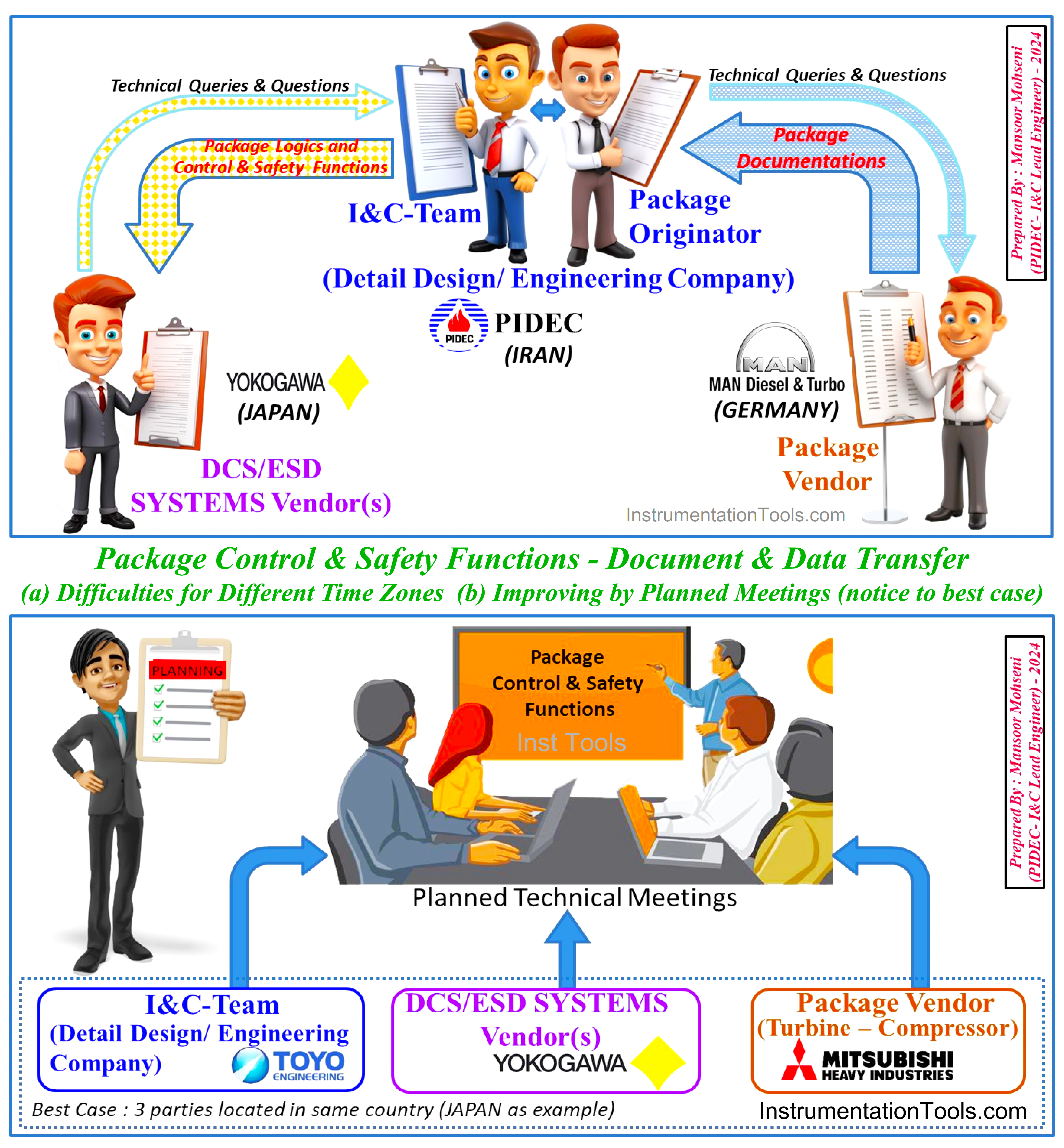
Figure-3: Package Control & Safety Functions – Document & Data Transfer
- Difficulties for Different Time Zones (figure 3)
- Improving by Planned Meetings (notice to best case) (figure 3)
- It shall be noticed that for a big or complex package the weight of responsibility clearances is very high and having exact guarantees on reliability and problem solving supports for divided responsibilities will be less (or decreased eminently). For big/ complex packages (especially for working in critical conditions) always may expect hidden/ unpredictable problems.
- The weight of effective mentioned factors during Project Plant Start-up and also regarding dependability consequences, also are very high and cannot be ignored easily.
Conclusion
During Detail Design Engineering phase of Process Plant Projects, Selecting the right method for implementing Package Control & Safety Functions is not so easy and depends on different factors. By considering all project conditions and requirements, during development of Process Control Systems Philosophy, I&C-Team shall investigate for assigning the best and applicable methods for each packages.
There are 3main methods for implementing the required systems for Packages:
- Using Plant DCS/ESD Systems as Package Control & Safety Systems
- Using a dedicated (separate) Unit Control Panel (UCP) as Package Control & Safety Systems
- Using combination of DCS/ESD Systems + Auxiliary Panel/Cabinet as Package Control & Safety Systems.
Each method has some advantages and some weak points (which some of them are reviewed by this article) but usually for small and medium packages the first and third methods may be better assignment while for big/complex packages the second method me be better assignment.
References:
- Instrument Package System Architecture
- Turbine-Compressor System Architecture
- Process Control Systems Philosophy
- Instrumentation Design Engineer Roles
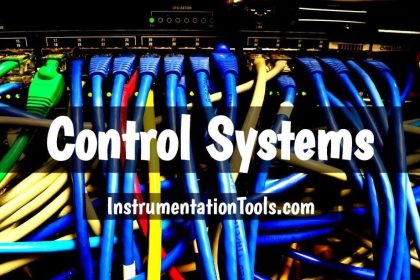
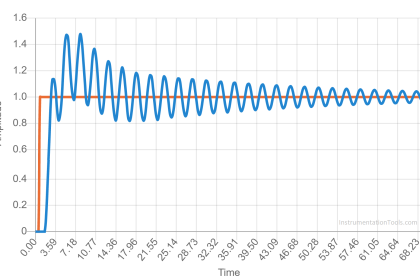
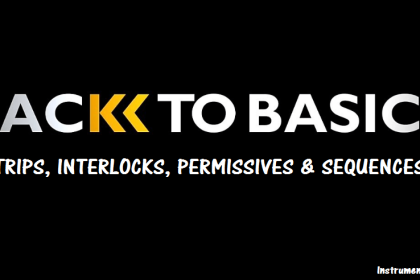
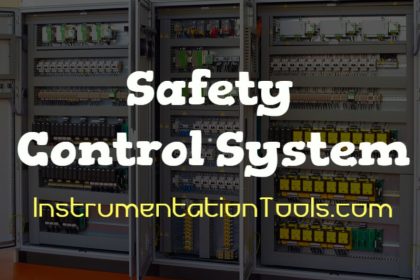
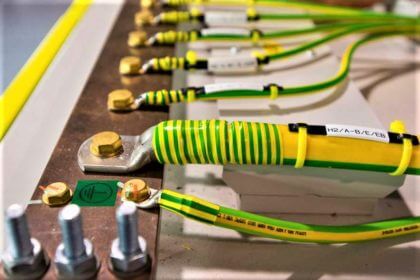



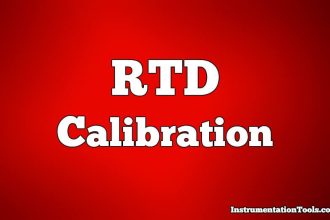
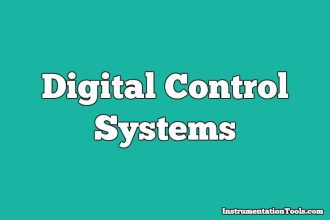
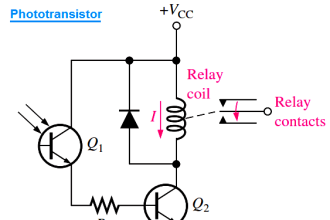


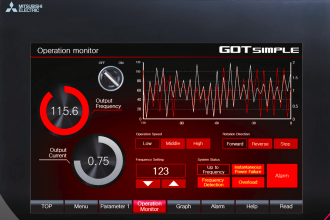

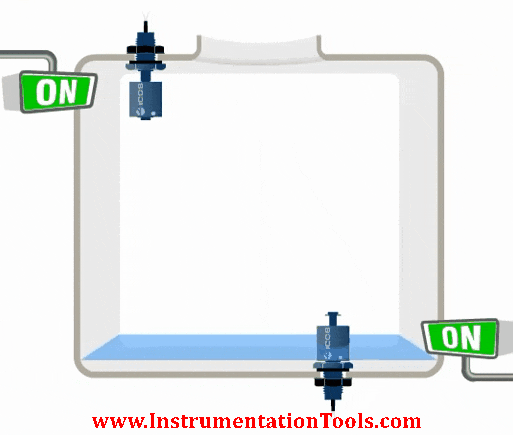

Wonderful
It’s almost like TRICON system